
WASHINGTON, July 27 (Xinhua) -- U.S. President Barack Obama on Saturday reiterated his country's security commitment to the Republic of Korea (ROK) while commemorating the 60th anniversary of the Korean War armistice.
Addressing a crowd of some 5,000 people including veterans at the Korean War Memorial in Washington D.C., the president vowed that "the commitment of the United States to the security of the Republic of Korea will never waver."
He said U.S. partnership with ROK, a treaty ally and "one of the world's most dynamic economies," remains "a bedrock of stability" throughout the Asia and Pacific region. "Korea taught us the perils when we fail to prepare," Obama said.
"Today, as we end a decade of war and reorient our forces for the future, as we make hard choices at home, our allies and adversaries must know the United States will maintain the strongest military the world has ever known, bar none, always."
More than 36,000 American troops died and over 100,000 others were wounded in the Korean War that ran from June 25, 1950 to July 23, 1953. The war is not officially over, because no peace treaty except an armistice agreement was signed.
"To this day, 7,910 Americans are still missing from the Korean War, and we will not stop working until we give these families a full accounting of their loved ones," Obama said.
He signed a proclamation declaring Saturday as National Korean War Veterans Armistice Day, saying the anniversary marks the end of the war and the beginning of a "long and prosperous" peace.
On the same day, senior U.S. defense officials also highlighted the importance of relations with allies as the country shifts its strategic priorities to the Asia Pacific region.
"The Korean War teaches us an important lesson -- that alliances and international institutions are extensions of our influence, not constraints on our power," Defense Secretary Chuck Hagel said. "And they are critical to our long-term vision of peace and stability, especially in the Asia Pacific."
To sustain security and prosperity in the 21st century, the United States is "strengthening its economic, diplomatic, cultural and security ties with countries throughout Asia," he said.
Seeking stronger alliances and strengthening regional institutions are what the Obama administration is doing in its rebalance toward the Asia Pacific region.
The United States is shifting its strategic focus to the Asia Pacific region, and the U.S. military is prioritizing investments and operations in that region as it faces budgetary constraints.
To battle fiscal difficulties, the U.S. military has been more and more open to fostering allies' capabilities in complementing its own.
On its way to the Korean War Memorial, Obama's motorcade passed a group of protesters on the Constitution Avenue, with signs shouting "No to war, Yes to peace."
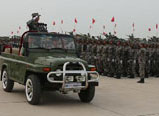
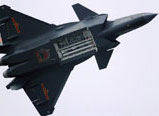
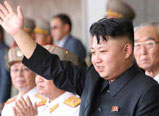


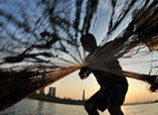



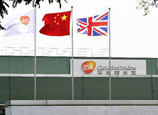






 Working under 40 degrees Celsius
Working under 40 degrees Celsius


![]()
